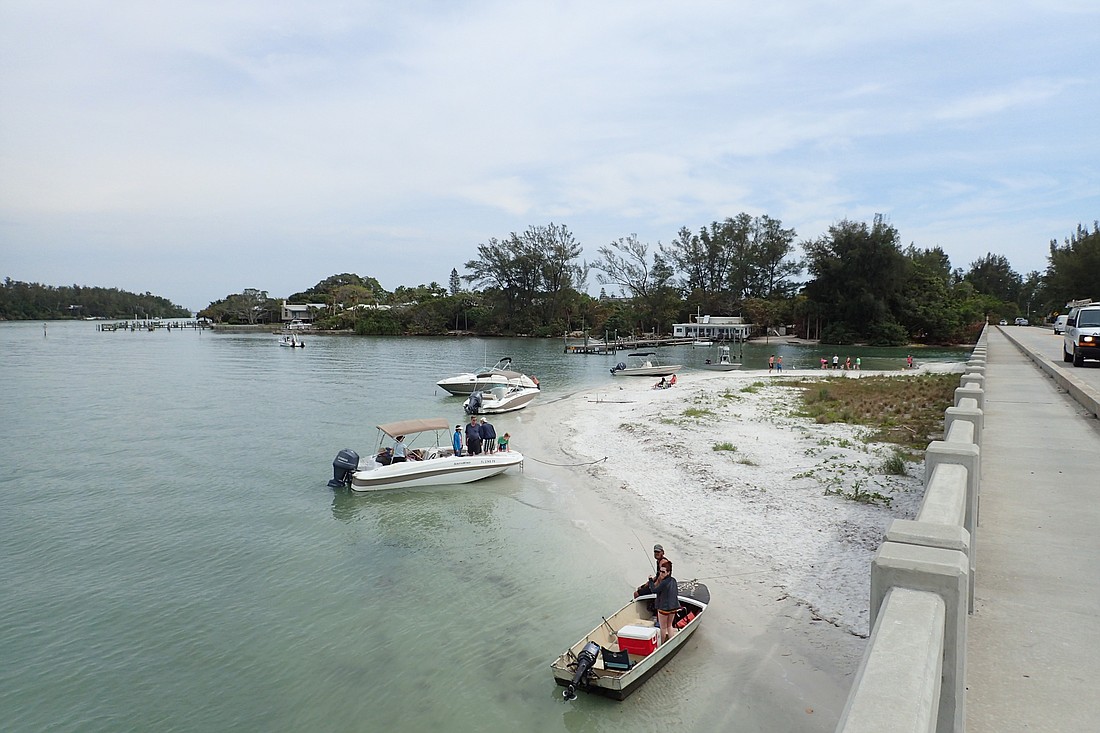- July 26, 2024
-
-
Loading

Loading

On weekends, boaters gather near Jewfish Key and the Longboat Pass Bridge, where they party and play loud music. The resulting sounds carry over the water into the homes of north-end residents.
“On the weekends and after 4 p.m, everybody’s playing music very, very loud,” said north-end resident Ann Roth. “I’m right on the water.”
Some residents have asked why the town can’t regulate the noise the same way it would if noise spilled over from a loud party.
Last fall, north-end residents came before the Longboat Key Town Commission to ask for relief. Since then, Deputy Police Chief Frank Rubino and Town Attorney Maggie Mooney-Portale have researched the issue, exploring how to enforce noise regulations for boaters.
“We can’t regulate the content of music, but we can regulate the sound, generally,” Mooney-Portale said during the commission’s March 23 workshop.
Ultimately, the town seeks to determine a decibel level at which it considers noise acceptable.
According to Mooney-Portale, the town plans to eventually hire a consultant to develop a noise standard. But first, it will seek an opinion from the state attorney general because a state law pre-empts cities and counties from regulating vessels in some waters.
Due to the law’s unclear language and a lack of case law regarding the subject of regulating noise from vessels in certain waters, an opinion would be preferable before spending money on more study or equipment, according to Mooney-Portale.
Mooney-Portale was optimistic about the town’s ability to enforce noise levels, saying she had consulted with Florida Fish and Wildlife Commission, which unofficially agreed that the pre-emption would likely not apply to noise.
She estimated that hiring a consultant to determine acceptable noise levels and buying equipment to enforce regulations could cost anywhere from $25,000 to $75,000. Equipment that would not only measure noise levels but would also identify the source could cost approximately $50,000 alone.
Rubino said complaints began approximately a year ago, when Longboat Key police did not have a boat on the water every day.
Since then, police have had a greater marine patrol presence. Rubino said they’ve been getting more compliance when they ask boaters to turn down loud music.
The commission will determine whether the town’s regulations need to be updated if allowed by state law or if police should continue addressing the problem as they have been, Rubino said.
Commissioner Ed Zunz, who lives on the north end, said during the workshop that on some weekends, as many as 100 boats anchor in the area.
He said he has heard of residents near Lighthouse Point, on the south end who put their homes on the market to avoid the noise.
“For some people,” Zunz said, “it’s really intolerable.”
The town’s current ordinance allows marine patrol officers to give boaters a warning first for blaring loud music.
If the offender blares music within a year of receiving a noise violation warning, he or she receive a notice to appear in court and could face up to a $500 fine or 60-day jail term.